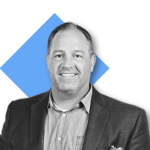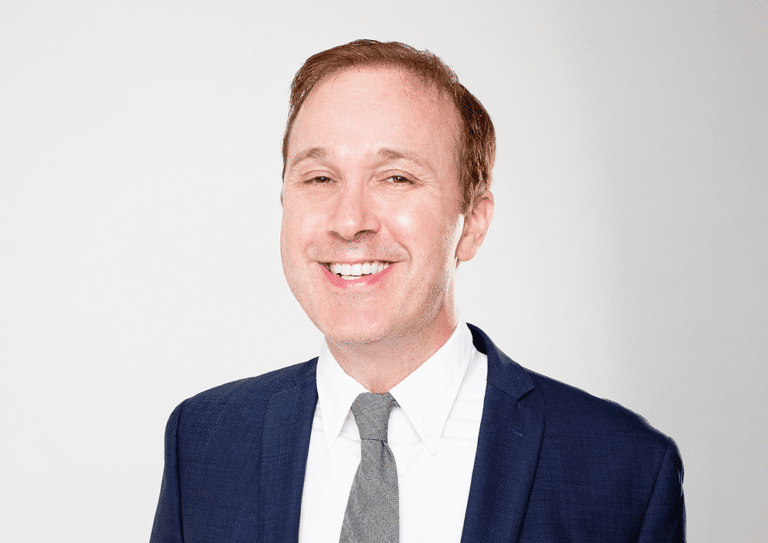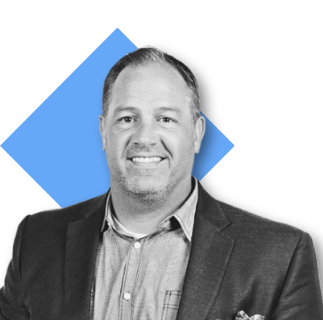Gregory Hold is the Founder of Hold Brothers, a direct-access trading firm established in 1994. He is a seasoned financial industry CEO and engaging public speaker with over 20 years of expertise in trading regulation, compliance, anti-manipulative trading, broker-dealer management and market structure technology. As the founder of Hold Brothers, Gregory developed the innovative Graybox™ software platform, propelling the firm to prominence in the U.S. financial markets with headquarters in New York City. Gregory has spoken at industry events such as the Trader’s Expo New York, where he discusses compliance surveillance best practices and industry insights from his extensive broker-dealer management experience. He holds a B.A. in physics and economics from Rutgers, and he is currently pursuing an M.S. in Technology Management from Columbia University and has completed advanced computer science courses at Fordham University.
In addition to his professional achievements, Gregory holds multiple FINRA licenses and contributes to the New York City comedy scene, using his expertise to both entertain and educate audiences on financial topics.
Company: Hold Brothers Capital
We are thrilled to have you join us today, welcome to ValiantCEO Magazine’s exclusive interview! Let’s start off with a little introduction. Tell our readers a bit about yourself and your company.
Gregory Hold: I’m the founder and CEO of the Hold Brothers companies, including Hold Brothers Capital, a technology-driven trading firm I established with the goal of building a disciplined organization that could operate effectively in any market environment. Over the years, we’ve developed our proprietary trading software, Graybox™, and established systems for compliance, risk management, and speed, to navigate the market to the best of our ability. We’re a self-clearing U.S. broker-dealer and specialist in routing, with about 1 billion shares a month. What began as a small trading group has grown into a global operation active in both U.S. and international markets.
Today, our company is defined by clarity, accountability, and our performance under pressure. I’ve led Hold Brothers through multiple market cycles, including downturns and restructurings, and what has always guided us is a commitment to honest communication, decisive action, and building teams that truly understand our mission.
Can you share a time when your business faced a significant challenge? How did you navigate through it?
Gregory Hold: In the year 2000, we surpassed $130 million in revenue. But when the internet bubble burst, we lost a significant part of our business almost overnight. Our expenses were too high, and we didn’t have enough visibility into where our resources were going. I had to take a hard look at our structure and make some tough calls. We downsized, reduced services, and reduced our footprint.
It was a difficult period, but it pushed me to take responsibility and lead with transparency. I realized that waiting for the “perfect” moment in a crisis doesn’t work. You have to make the best decision you can with the information you have and be ready to adjust as things change. That idea, progress over perfection, has shaped how we operate ever since.
How has a failure or apparent failure set you up for later success?
Gregory Hold: Failure is a powerful teacher if you’re willing to face it honestly. When the U.S. day-trading market collapsed, we found ourselves competing for a small pool of domestic traders who knew their value. That challenge pushed us to look internationally, which ended up transforming our company for the better. Today, most of our revenue comes from international traders, a shift that never would have happened if our old model hadn’t failed. Every major turning point started with a challenge that required honesty, adaptability, and the willingness to evolve.
Further, it taught me to have a good handle on expenses and to approve almost all bills and contracts. I learned to be extremely cautious in committing to contracts and to generally get less office space than you think you need.
How do you build a resilient team? What qualities do you look for in your team members?
Gregory Hold: Generally, the most important attribute in hiring is intelligence. Commitment and hard work are next. At Hold Brothers, we don’t just hire for skill; we hire for alignment. I want people who truly believe in what we’re building and share our values of discipline, transparency, and trust. Ability is important, especially in a fast-paced trading environment, but I’ve seen talented individuals struggle if they aren’t invested in the mission.
When people believe in the purpose of their work, they stay focused under pressure. They step up, collaborate, and find solutions together. A resilient team is one that learns, adjusts, and moves forward as one.
How do you maintain your personal resilience during tough times?
Gregory Hold: For me, resilience is rooted in discipline and perspective. While I can’t control the market or every outside factor, I can control my habits, mindset, and reactions. Further, I have confidence that I’ve successfully navigated crises many times and will do so again, too.
I stay grounded by focusing on clarity and consistency, making decisions based on facts rather than emotion. I’ve learned that leadership isn’t about always having the right answer. It’s about being steady, honest, and open to listening. Those principles help you not just get through tough times but also learn and grow from them.
What strategies do you use to manage stress and maintain focus during a crisis?
Gregory Hold: From a personal point of view, I remember that I’ve won many times, so I have confidence that I can do it. I’ve been through tough times and emerged victorious. I also try to schedule fun activities with hard start times to take my mind off the crisis. Exercise and short trips do wonders as well.
Also, I believe in transparency. When things get tense, hiding information only creates more anxiety. I focus on sharing what we know, what we don’t, and what we’re doing about it. Honesty builds trust and keeps everyone focused on solutions, not rumors. As a leader, it also keeps me accountable.
You need to keep moving. In a crisis, indecision is its own risk. I make the best call I can with the information available and stay flexible enough to adjust quickly. Waiting for perfect clarity almost never works. You need momentum and humility to course correct when needed.
How do you communicate with your team during a crisis?
Gregory Hold: People want to know why decisions are being made and what to expect next. Without that context, transparency falls flat. I focus on communicating directly, in person if possible, and clearly, even when I don’t have all the answers. It’s better to be upfront about uncertainty than to pretend to have everything figured out. That honesty builds trust and keeps morale strong, even when the news isn’t great, so everyone stays aligned and ready to move forward.
What advice would you give to other CEOs on building resilience in their organizations?
Gregory Hold: Having long-term employees who are dedicated to the mission is important. You can’t build resilience overnight or only in a crisis. It’s something you develop every day through the way you hire, set expectations, and lead. Teams take their cues from leadership, so be upfront about challenges, take responsibility for mistakes, and stay decisive under pressure, and your team will follow.
It also matters to hire people who care about the “why” as much as the “what.” Skills can be taught, but a shared purpose can’t be manufactured. The most resilient organizations are built on trust, clarity of mission, and people who feel empowered to take ownership. When those elements are in place, you can adapt to anything.
How do you prepare your business for potential future crises?
Gregory Hold: To prepare for a crisis, don’t overextend, keep expenses reasonable, have enough cash, and don’t work so hard all the time that when you enter a crisis, you’re already burnt out.
We’re constantly evaluating our systems to identify blind spots. I believe in stress-testing both our technology and our people. Can we make quick, informed decisions? Can we adapt without losing our sense of teamwork? Those questions are just as important as any forecast.
What’s the most important lesson you’ve learned about leadership in times of crisis?
Gregory Hold: Without trust, it’s almost impossible to lead a team through uncertainty. People don’t expect perfection, but they do want clarity and accountability. You have to be upfront about what’s happening, explain your decisions, and demonstrate your willingness to tackle tough issues head-on instead of waiting and hoping things work out. Further, I have the confidence to know I’ve succeeded in navigating crises many times and will this time too.
The other lesson is that courage and humility go hand in hand. You need the courage to act when things are unclear, and the humility to change course when new information comes in. That mix of being decisive but never arrogant is what keeps an organization steady and moving forward.






